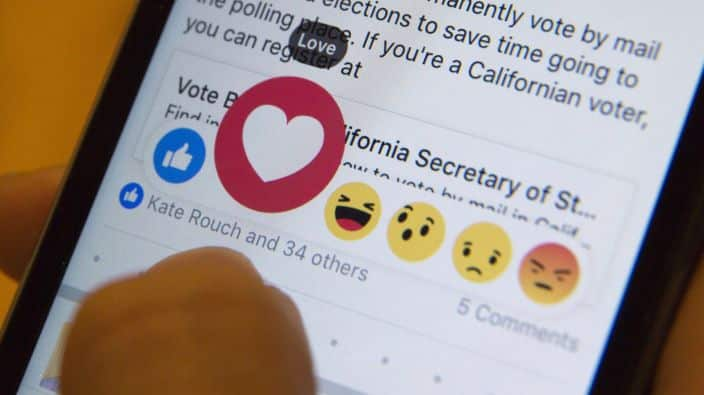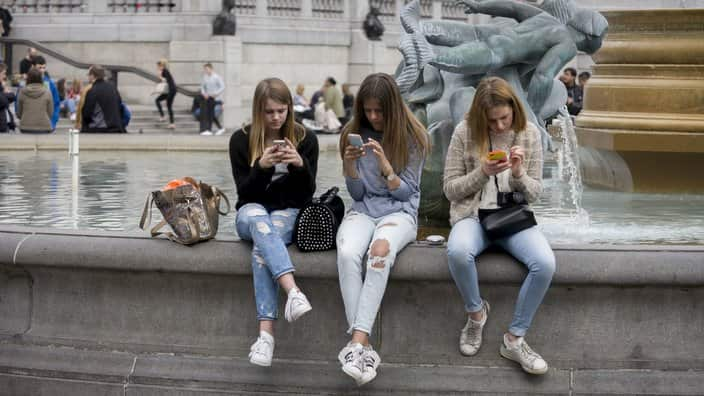"Thank you for sharing. I liked your page. Please follow me."
Ten years ago that statement may have referred to someone explaining their feelings in writing, followed by an invitation to physically move somewhere.
But our language has changed in the era of social media. Words have acquired new meanings, sentences have different structures and we often communicate using strings of emoticons or emoji.
This is the opinion of Dr Matteo Farina, a linguistics researcher at Flinders University and the University of Adelaide and author of the bestselling book Facebook and Conversation Analysis.
"Similar to when we introduced the telephone, or when we started using the first mobile phone, every time we use a new device in a sense we are just adapting our communication to it," he says.
According to Farina, such changes present opportunities for new styles of communication, and as people take advantage of those new possibilities, our language itself changes.
How language adapts to social media
On Facebook comment threads or posts rarely start with a greeting, because the conversation is always ongoing.
"You can login into Facebook and check all your conversations and you can see people don't normally start with 'hi' or 'hello'," says Farina.
This is what researchers call "a state of incipient talk".
"It is like when we are working in an office and we meet a colleague," he says. "The first time we greet them, but if we meet that same person 10 times in the day, we don't repeat the greeting. It's like the conversation is always open."
And this is similar to what we do on Facebook.
"We assume that people are always connected so we don't need to use greetings."

Taking advantage of new media
Farina says the features of platforms like Facebook mean we also co-opt statements and media from other sources, using them as our own forms of expression.
"I don't need to write, 'How great is the new movie The Joker.' I can just post the hyperlink from the trailer on YouTube and by doing this, you will see the video preview and, probably, also have a written description from the website."
In this case we take advantage of the dynamic features of Facebook, Farina says.
"It has become so common that we do not even realise this part of the communication is different from what we do in normal interactions."
Short and sweet
According to Farina, simplification is key to the new language of Facebook and social media.
"I believe that in a sense there is a sort of simplification of the language every time we use a device to communicate."
One such example of a medium simplifying language is Twitter's character limit, but this applies to every form of communication, says Farina, who compares such contraction to our regular use of idioms to explain complex concepts.
Emoticons and images such as gifs are also a speedy way of communicating complex meaning.
"We do this using a selfie, a photo, a video or even an emoticon," Farina says. "Some of my students use large amounts of emoticons to overcome the limitations of the medium."
According to him, international students use a lot of emoticons to help them with intercultural communication on social media, while without them they may have more difficulty expressing themselves in face-to-face interactions with other Australian students.

'Like to share'
How else does the language of social media change the way we speak in daily life?
One example of change is the meaning of the word 'share', says Farina, which has taken on new meaning outside of the traditional idea of distributing food or physical objects.
Moreover, today when we say 'like' we think about the function of the same name on Facebook – the little thumbs up. If we say, 'I like something', we are often not talking about liking someone or something in the way we once would have.
"I do not really 'like' the thing you have posted or what you did but I 'like' it to say, 'yes we are friends'," Farina says of the highly frequent 'liking' we do of things in real life and on social media.
He calls this 'relationship maintenance', comparing it to a common age-old activity.
"I am walking while engaged in another conversation, and pass you, but I nod at you to acknowledge you. That is the function of our 'likes' on social media."
